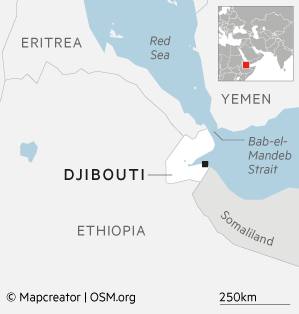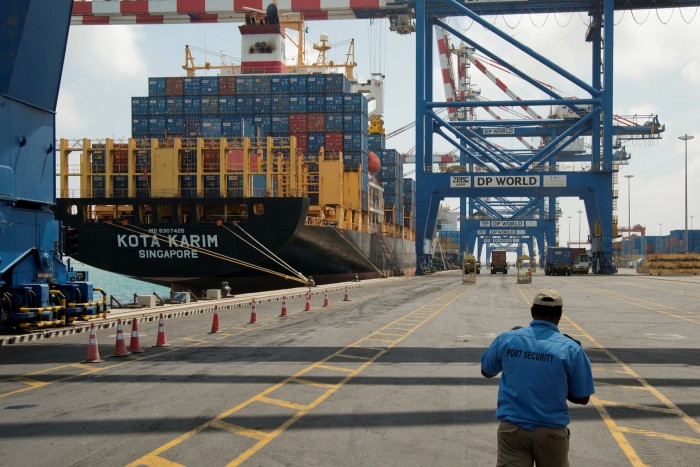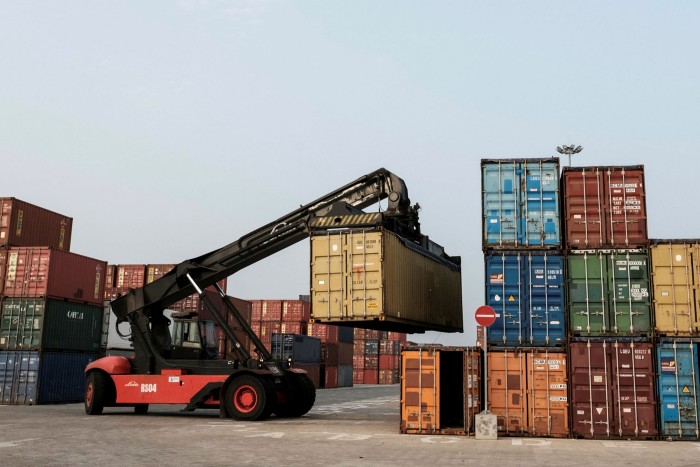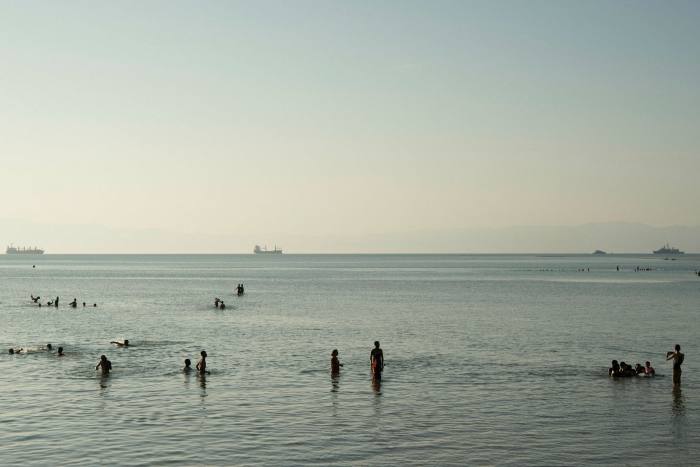On a sultry spring afternoon, the chief executive of Djibouti’s main container port is overseeing a large Chinese vessel unloading containers destined for neighbouring Ethiopia.
“This one arrived this morning and it’s all done, it will depart for Jeddah tonight,” says Abdillahi Adawe Sigad, head of SGTD (Société de Gestion du Terminal à conteneur de Doraleh), with satisfaction.
Such efficiency means Djibouti’s goal of emulating Singapore as a leading maritime trading hub is within reach.
“Our dream is to become a new Singapore,” says Sigad, who previously worked in Panama, another key maritime transshipment trading post.
According to a new global container port performance index compiled by the World Bank and IHS Markit, the port is the most efficient in Africa measured by minutes per container move. “There is a need for investment, there is a need for co-operation, on capacity building, but we are on a main traffic axis,” Sigad says.

A small country of barren mountains and desert, Djibouti is on the strait of Bab-el-Mandeb on the north-east edge of Africa. This is where 30 per cent of the world’s shipping passes through a chokepoint on its way to the Suez Canal and the Red Sea.
“There are five very critical straits in the world — Bab-el-Mandeb, the Suez Canal, Panama, Gibraltar and Malacca,” says Aboubaker Omar Hadi, chair of the Djibouti Ports and Free Zones Authority.
“People ask: ‘Why is this small country developing so many ports?’ Because there is a demand,” he adds. “We are attracting more and more transshipments.”
Wedged between Ethiopia, Eritrea, the self-declared independent state of Somaliland and the sea, Djibouti has become a linchpin of global commerce, thanks to these ports. Its economy is forecast to grow by 7 per cent this year, one of the fastest rates in Africa. Over the past 15 years, the country has tried to capitalise on its strength and location to become a hub for international trade and logistics.
Carl Lorenz, managing director for east Africa at AP Moller-Maersk, the world’s biggest container shipping group, believes Djibouti’s six ports, which handle about 1m containers a year, are “among the most productive terminals in Africa”.
Djibouti, viewed by analysts as a stable anomaly in the unstable Horn of Africa, also recently set up a sovereign wealth fund, for domestic investment, aiming to finance about $1.5bn of business activity over the next decade.
In the past 10 years, Djibouti has attracted some $4bn in investment — from China, Gulf countries and the US, among others — into ports, oil and gas terminals, free trade zones and a 750km rail line that can carry 2,600 tonnes of wheat and fertilisers and 110 containers per trip to Ethiopia.
As a key transshipment venue, Djibouti “serves most ports on the east coast of Africa all the way to Durban in South Africa”, explains Dawit Michael Gebre-ab, senior director of strategic planning at Djibouti Ports and Free Zones Authority.
Moreover, such a strategic location makes Djibouti home to military bases, earning it $125m a year in rents from the US, China, France, Japan and Italy combined. A former French colony that became independent in 1977 and with a population of almost 1m, Djibouti also provides a critical lifeline for landlocked Ethiopia and its fast-growing population of 114m.
Birhanu Redai, an Ethiopian trucker loading steel rolls in the port of Tadjoura, across the bay from Djibouti city, says: “Without Djibouti, there will be no trade for Ethiopia.” His truck will travel home on a newly paved road corridor.
It has not been an entirely smooth progress, though. Three years ago, Djibouti seized the Red Sea container port of Doraleh from DP World, after a wrangle with the Dubai-based ports operator. DP World’s chair and chief executive, Sultan Ahmed bin Sulayem, said Djibouti acted illegally and took it to court.
But Hadi counters that DP World’s goal was to take control of Djibouti’s coastline. And, if anything, Djiboutians believe the tussle with Dubai has boosted their country’s ambitions.
The historic port in the heart of the city of Djibouti is being developed into an international business district with hotels, a marina and real estate projects, while the Djibouti International Free Trade Zone is already operational.
The Djibouti Damerjog Industrial Development Free Zone is being built to serve petrochemicals projects and heavy industry. There is also a terminal for livestock — including camels — a shipping line, a repair yard for vessels, and a liquid bulk port.
Recalling that Singapore was once a British military barracks, Panama an American protectorate, and Djibouti a French garrison, finance minister Ilyas Moussa Dawaleh says his country’s ambitions are not far-fetched.
“We have the same characteristics as Singapore, then we share some with Panama,” he says. “Some are a bit specific to Djibouti but . . . the world is moving towards trade and services.”
"port" - Google News
June 01, 2021 at 10:30AM
https://ift.tt/3p7BKNs
Djibouti's port dream to become the 'Singapore of Africa' - Financial Times
"port" - Google News
https://ift.tt/2VXul6u
https://ift.tt/2WmIhpL



No comments:
Post a Comment